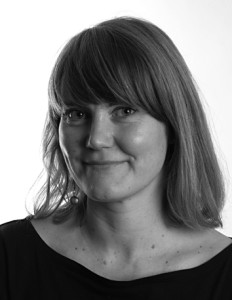Religious traditions and muslim youth in europe
Christine M. Jacobsen (UiB/Uni Rokkansenteret)
Jonas Otterbeck (University of Lund)
Synnøve Bendixsen (SKOK/Uni Rokkansenteret)
A major question regarding Islam in Europe concerns the religiosity of “Muslim youth” – a category currently epitomizing both the fears and hopes of multicultural Europe. At this seminar, researchers working in 3 European countries look at how Islamic traditions are engaged and reworked by young people, born and educated in European societies, and discuss the modes of religiosity that are shaped in a context of international migration, globalization, and secular modernity.
Christine M. Jacobsen launches her new book Islamic Traditions and Muslim youth in Norway in conversation with Jonas Otterbeck, the author of Samtidsislam: unga muslimer i Malmö och Köpenhamn and Synnøve Bendixsen, the author of “It’s like doing SMS to Allah” Young Female Muslims Crafting a Religious Self in Berlin.
Seminar and book launch.
Organised in collaboration with Department of Social Anthropology, UiB.
Time: Friday 21 January, 13.15-16.00.
Venue: Uni Rokkansenteret, Nygårdsgaten 5, 6. etg (5th Floor)
«Mobilitet, moral og migrasjon: familisme – begrepet i norske og italienske kontekster.»
Seminaret tar for seg hvordan middelhavslandenes familisme – begrep konstrueres og erfares i migrasjons-kontekster blant nordmenn i Italia og italienere i Norge. Dagens familisme utfordres både av «post-moderne” endringer i familie-strukturen, slik som lav fertilitet og stigende skilsmisse-rater, og av finanskrise og migrasjon.I Sør-Europa eksisterer lav fertilitet side om side med tradisjonelle omsorgs-organiseringer og parallelt med kontant-tunge velferdsprogrammer og begrenset produksjon av tjenester for de unge og de eldre. Den sentrale oppfatningen i komparative studier av relasjonen mellom familie og velferd er at velferdsstatene baserer politikken på en «tatt-for-gitt» holdning til en kjønnstradisjonell familie-institusjon, og denne kulturelle forutsetningen sementerer de tradisjonelle familie-strukturene. Men i hvilken grad er familiestrukturer og kulturelle og sosiale normer og verdier bundet sammen med idealtypiske regimer og nye migrasjonsmønstre?Nyere forskning viser til at sør-europeiske kvinner drømmer om den nordiske velferdsstaten eller en stat som organiserer familie -og arbeidsbalansen bedre. De vil ha tilgang på flere og bedre offentlige omsorgstjenester. Nordiske velferdsstater framstår som reneste paradiser for kvinner i Italia, og definitivt som et ideal, hevder samfunnsforskere. På den andre siden ser vi at mens italienere drømmer om velferd og arbeid, drømmer nordmenn om mer familieliv. En av de norske informantene i mitt prosjekt sier at hennes drøm er «å få til et italiensk familieliv kombinert med et norsk arbeidsliv». Hvordan er forbindelsen mellom familie-strukturer og familie-verdier? Hvordan er de relatert til mobilitet, moral og migrasjon?
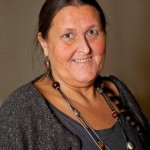 Lise Widding Isaksen er professor i sosiologi på Universitetet i Bergen. Hun jobber for tiden med prosjektene 1) «Mobilitet, moral og migrasjon: en studie av familiekulturer i Norge og Italia» , 2) «Polish Female Migrants and Their Families: A Study of Care Deficits» og 3) «Welfare Models, Demographic Patterns and Family Strategies in the Context of the Financial Crisis in Spain»
Lise Widding Isaksen er professor i sosiologi på Universitetet i Bergen. Hun jobber for tiden med prosjektene 1) «Mobilitet, moral og migrasjon: en studie av familiekulturer i Norge og Italia» , 2) «Polish Female Migrants and Their Families: A Study of Care Deficits» og 3) «Welfare Models, Demographic Patterns and Family Strategies in the Context of the Financial Crisis in Spain»
Siste publikasjoner:
Lise Widding Isaksen, 2010 (ed): Global Care Work. Gender and Migration in Nordic Societies. Nordic Academic Press, Lund, Sverige
Lise Widding Isaksen (2012) “Transnational Spaces of Care: Migrant Nurses in Norway.” In Social Politics, International Studies in Gender, State and Society, vol. 19, number 1, spring 2012, p.58-78, Oxford University Press, Oxford
“Children Left Behind” i samarbeid med Uma Devi og Arlie R. Hochschild i Hochschild, Arlie R., 2013: «So How’s the Family» and other essays», University of California Press, Berkeley
Communicating Migration Seminar Series IMER Bergen spring and autumn 2014
The IMER seminar series for 2014 will cover how migration and ethnic relations are communicated in every-day encounters, in mass and social media, in politics and in teaching at the universities. Has the way people talk about migration and migrants in different social contexts changed over time, and in which ways has it changed? How does migration theory and research fit in with other topics and theories in the social sciences, and how do results from migration research inform public debate and policy development? Communicating migration will be discussed from various angles in our seminar series on international migration and ethnic relations during spring and autumn 2014. We welcome papers that touch upon this broad theme from different angles. Historical analyses of change over time in regard to politics and public debate, research foci and disciplinary concerns are specifically welcomed. The seminar series will end with a two-day conference in October/November 2014.
The Children of the Revolution: Reflections on Chinese London and how to Theorise these New Forms of Migration
This paper explores some of the London data from a three-city investigation of migration. The other two cities are Beijing and Hong Kong, and in each city we are exploring young (23-39) graduate migrants from the other two cities in order to understand how global mobility features in young professionals’ life and career planning. Little has been written about UK migrants in Hong Kong and Beijing, and the existing literature on Chinese migrants in London is centred on long-term (often depicted as poor and illegal) migrants from Hong Kong. Such studies do not begin to capture the lives of the new young migrants, many of whom are from Mainland Chinese cities, who must navigate new border restrictions favouring the wealthy and the highly talented. The paper will explore some of the challenges to existing migration theory these young urban migrants pose.
Caroline Knowles
 Caroline Knowles is Professor of Sociology and former director of the Centre for Urban and Community Research (CUCR) at Goldsmiths, University of London. She is known for her work with artists and photographers exploring the intersections between art and sociology in urban social research. Following her interest in materials and translocality she has just completed the biography of a pair of flip-flop sandals funded by the Leverhulme Trust with Singapore artist Michael Tan. Flip-Flop: A Journey Through Globalisation’s Backroads will be published in May by Pluto Press. Following her interests in migration she is also currently researching the Beijing, London, Hong Kong circuit travelled by young migrants in these three cities in collaboration with Ho Wing Chung at the City University of Hong Kong. She is the author of many books and papers on cities, ethnicity, migration and mobilities including Hong Kong: Migrant Lives, Landscapes and Journeys (2009) University of Chicago Press with US photographer and Sociologist Douglas Harper.
Caroline Knowles is Professor of Sociology and former director of the Centre for Urban and Community Research (CUCR) at Goldsmiths, University of London. She is known for her work with artists and photographers exploring the intersections between art and sociology in urban social research. Following her interest in materials and translocality she has just completed the biography of a pair of flip-flop sandals funded by the Leverhulme Trust with Singapore artist Michael Tan. Flip-Flop: A Journey Through Globalisation’s Backroads will be published in May by Pluto Press. Following her interests in migration she is also currently researching the Beijing, London, Hong Kong circuit travelled by young migrants in these three cities in collaboration with Ho Wing Chung at the City University of Hong Kong. She is the author of many books and papers on cities, ethnicity, migration and mobilities including Hong Kong: Migrant Lives, Landscapes and Journeys (2009) University of Chicago Press with US photographer and Sociologist Douglas Harper.
Communicating Migration Seminar Series IMER Bergen spring and autumn 2014
The IMER seminar series for 2014 will cover how migration and ethnic relations are communicated in every-day encounters, in mass and social media, in politics and in teaching at the universities. Has the way people talk about migration and migrants in different social contexts changed over time, and in which ways has it changed? How does migration theory and research fit in with other topics and theories in the social sciences, and how do results from migration research inform public debate and policy development? Communicating migration will be discussed from various angles in our seminar series on international migration and ethnic relations during spring and autumn 2014. We welcome papers that touch upon this broad theme from different angles. Historical analyses of change over time in regard to politics and public debate, research foci and disciplinary concerns are specifically welcomed. The seminar series will end with a two-day conference in October/November 2014.
BSRS 2014 Governance to meet Global Development Challenges
Welcome to BSRS2014!
The theme for BSRS2014 is Governance to meet Global Development Challenges. The event will take place from June 23rd to July 4th 2014 at the University of Bergen. Please find information about the courses, application form and other activities at the menu to your right side.
One of the courses is and IMER/SKOK PhD course.
Read more at:
http://www.uib.no/rs/bsrs/programme/bsrs-2014-governance-to-meet-global-development-challenges
Plural policing and the safety–security nexus in urban governance
Based on a study of policy frames in urban politics in Sweden, Malmö in particular, this article discusses the safety–security nexus in urban governance. It argues that perceived safety figures as an index of order and integration, and security becomes part and parcel of an expanded cohesion agenda which chain-links criminal justice, immigration control and civic integration. The expanded cohesion agenda in urban governance involves plural urban policing enabled by partnership agreements between the police and local authorities. The article demonstrates how force-based, pre-emptive crime-fighting is intertwined with preventative empowerment programmes; the ‘will to power’ is embedded in ‘the will to empower’. The preferred solution to social problems is extended force-based policing in combination with more police involvement in ‘social’ governance. It is argued that the expanded social cohesion agenda works to ‘criminalize’ specific subpopulations by replacing ‘social’ welfare politics with crime prevention programmes. Under an expanded cohesion agenda, crime prevention has less to do with preventing people from violating the law and more to do with securing the social order. Moreover, it is argued that security politics relates to a broader urban politics aimed at nurturing prosperous diversity considered to benefit the city as a whole, at the cost of problematic difference. In conclusion the article argues that urban security politics lends itself to old welfare state structures, even as responsibility for social crime prevention is devolved ‘downwards’ and distributed across and array of agencies. The social democratic legacy – the revised welfare state – seems to offer favorable conditions for plural policing of minority groups in the city.
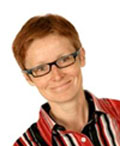 Randi Gressgård is professor at the Centre for Women’s and Gender Research (SKOK), and affiliated with the research unit International Migration and Ethnic Relations (IMER), University of Bergen. Her research interests include migration & minority studies, gender & sexuality studies and urban studies. Among her recent publications are Multicultural Dialogue: Dilemmas, Paradoxes, Conflicts (New York and Oxford: Berghahn Books, 2010/2012) and ‘The power of (re)attachment in urban strategy: Interrogating the framing of social sustainability in Malmö’ (Environment and Planning A 2014, vol. 46).
Randi Gressgård is professor at the Centre for Women’s and Gender Research (SKOK), and affiliated with the research unit International Migration and Ethnic Relations (IMER), University of Bergen. Her research interests include migration & minority studies, gender & sexuality studies and urban studies. Among her recent publications are Multicultural Dialogue: Dilemmas, Paradoxes, Conflicts (New York and Oxford: Berghahn Books, 2010/2012) and ‘The power of (re)attachment in urban strategy: Interrogating the framing of social sustainability in Malmö’ (Environment and Planning A 2014, vol. 46).
Mistillitens migrasjon: Europeisk sør-nord mobilitet i kjølvannet av krisa
Tema for innlegget er den nye Europeiske sør-nord migrasjonen. Den empiriske analysen er basert på dybdeintervjuer med noen av dem som har reist fra Spania til Norge etter kriseåret 2008. Innlegget vil belyse hvordan sør-nord migrasjonen i kjølvannet av krisa er mer enn en desperat flukt fra arbeidsledighet i hjemlandet. Den vidtrekkende mistilliten til det politiske systemet og følelsen av en dyptgripende håpløshet i hjemlandet er viktige migrasjonsfaktorer i tillegg til jobbmuligheter for dem som kommer til Norge.
Susanne Bygnes (phd) er postdoktor ved universitetet i Bergen. Hun leder det fireårige prosjektet Labour Migration in Uncertain Times: Migration from Spain to Norway after 2008, finansiert av forskningsrådets VAM-program. Hun har publisert en rekke internasjonale artikler på tema som mangfold og likestilling, blant annet Ambivalent Multiculturalism (2012) i tidsskriftet Sociology.
IMER Lunch: Astrid Ouahyb Sundsbø – Social mixing policies: What You Want and What You Get
In the public debate and contemporary social policies in Norway as well as in other countries, concentrations of “immigrants” in certain areas of a city are considered to be unfortunate and something which needs to be fought against (see i.e. Gakkestad 2003; Akerhaug 2012). It is anticipated that spatial concentrations of “immigrants” enforces the social isolation of “immigrants” and triggers criminal activities, among other aspects. This becomes very obvious when a “high percentage of immigrants” in an area serves as basis for referring to that area as a “ghetto” or “insecure” (see i.e. Sæter 2005; Vassenden: 2007; cf. Akerhaug 2012).
In this lunch seminar, the idea of social mixing, which is not just common in the general public debate but also a manifested major urban policy and planning goal (Sæter & Ruud 2005; Huse, Sæter & Aniksdal 2010; cf. Musterd 2005) will be discussed. By using some illustrations both from the academic debate as well as own empirical work, it is shown that it is necessary to be critical about this concept.
It is referred to literature arguing that there is a lack of empirical evidence showing that the residential segregation of “immigrants” has any effect at all, for instance on “integration” and crime (for instance Musterd 2005; Galster 2007; Lees 2008). Furthermore, it is discussed that the imagination of social mixing as an ideal way to tackle the “multicultural challenge” might be founded on a highly problematic understanding of “immigrants“ and their norms and values as inherently “bad” (cf. Eriksen 1996: 51). This is shown by drawing on statements from interviews with members from the majority population residing in Oslo.
Astrid Ouahyb Sundsbø
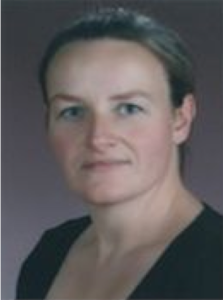 Astrid Ouahyb Sundsbø (PhD) is a postdoctoral research fellow at the Georg-Simmel Center for Metropolitan Studies in Berlin. She holds a doctoral degree in sociology from the Humboldt-University of Berlin (2012). From 2012-2014 she worked as a postdoctoral researcher at the Center for a Sustainable University at the University of Hamburg. Her main fields of research compromise: Social inequality, residential segregation in cities, migration and interethnic relations. Her most recent publication is Grenzziehungen in der Stadt. Ethnische Kategorien und die Wahrnehmung und Bewertung von Wohnorten (Springer VS, 2014) where it is discussed whether ethnic boundary making on the side of the majority population could be a possible explanation for the residential concentration of immigrants in Berlin and Oslo.
Astrid Ouahyb Sundsbø (PhD) is a postdoctoral research fellow at the Georg-Simmel Center for Metropolitan Studies in Berlin. She holds a doctoral degree in sociology from the Humboldt-University of Berlin (2012). From 2012-2014 she worked as a postdoctoral researcher at the Center for a Sustainable University at the University of Hamburg. Her main fields of research compromise: Social inequality, residential segregation in cities, migration and interethnic relations. Her most recent publication is Grenzziehungen in der Stadt. Ethnische Kategorien und die Wahrnehmung und Bewertung von Wohnorten (Springer VS, 2014) where it is discussed whether ethnic boundary making on the side of the majority population could be a possible explanation for the residential concentration of immigrants in Berlin and Oslo.
Lisa Kings: Contesting urban management regimes: The rise of urban justice movements in Sweden
Addressing segregation, racism and welfare transformation, a new form of grassroots mobilization among young adults is emerging in the peripheries of Swedish cities. The common denominator is that they define themselves as urban justice movements– with place as the social ground for mobilization. Witha Gramscian perspective, the article analysis the rise of urban justice movements in relation to contemporary urban policies in Sweden. We argue that Swedish urban policies during the last 20 years have created a hegemonic urban management regime underpinned by area based programs with a focus on network steering and new forms of partnership between civil society and public institutions. The emergence of urban justice movements is here understood in relation to firsthand negative experience of– and later active revulsion from– having participated in activities and issues related to the urban management regime. These experiences and the later proclaimed autonomy of the movements have been a key condition for the beginning of a broader struggle that merges local rootedness with wider structural-institutional conditionality. (co-authored by Aleksandra Ålund (Linköping University) and Nazem Tahvilzadeh (KTH Royal Institute of Technology).
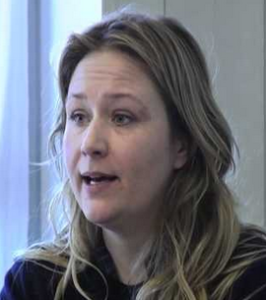 LISA KINGS holds a PhD in Sociology at Søderthorn University College. Her researh interests are urban theory, social movements, inequality and everyday life. (lisa.kings@sh.se)
LISA KINGS holds a PhD in Sociology at Søderthorn University College. Her researh interests are urban theory, social movements, inequality and everyday life. (lisa.kings@sh.se)
Vanja Lozic: Problematizing parents, governing troubled youth
The paperfocuses on current debate on troubled youth, living in socio-economically deprived suburbs in Sweden, and particularly discourses on problems of alienation, crime, arson and anti-social behaviour among youth. In the paper, interviews with the representatives of different organisations involved in managing the youth problem are analysed. One recurring theme in the interviews is problem discourses representing the parent as a problem. Departing from Foucault´s understanding of governmentality and the formation of subjectivity, we analyse the construction of problems, problematization, and conceivable solutions, as depicted by the interviewees. The problematizations recurring in the interviews are the deficiency of urban space, dysfunctional family relations and parents as being passive and culturally different. On the basis of such problematizations the interviewees propose solutions in various ways fostering the parents to become responsible and active subjects, who have internalised current norms and values. Other central solutions emerging in the interviews are the development of various forms of communicative skills as well as a range of pre-emptive measures targeting the parents. An important conclusion in the paper is that this way of developing possible solutions to the problems of suburban youth tends to focus on the transformation of individual parents, while structural dimensions get out of focus. What appears is a desire to foster parents and thus to produce a certain kind of subject, namely an active, responsible and cooperative individual, involved in the local community. (The paper is co-authored with Magnus Dahlstedt.)
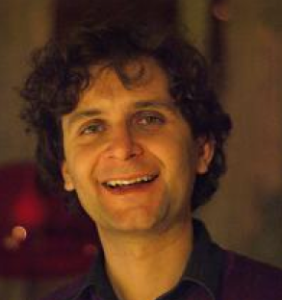 Vanja Lozic holds a PhD in history and issenior lecturer in Science of Education at Kristianstad University, Sweden. His research deals with issues in education from the perspectives of ethnicity, multiculturalism, gender, disability, youth cultures and work integrated learning. At present, he is participating in a research project “Cooperation, education and inclusion in multi-ethnic urban settings”, which concerns the connections between institutional restructuring, youth resistance and strategies for social inclusion. The aim is to investigate the measures for social inclusion within schools, local institutions and civil society actors in socioeconomically deprived areas of large cities in Sweden
Vanja Lozic holds a PhD in history and issenior lecturer in Science of Education at Kristianstad University, Sweden. His research deals with issues in education from the perspectives of ethnicity, multiculturalism, gender, disability, youth cultures and work integrated learning. At present, he is participating in a research project “Cooperation, education and inclusion in multi-ethnic urban settings”, which concerns the connections between institutional restructuring, youth resistance and strategies for social inclusion. The aim is to investigate the measures for social inclusion within schools, local institutions and civil society actors in socioeconomically deprived areas of large cities in Sweden
Active citizenship in culturally and religiously diverse societies.
In debates on citizenship in Europe, the need for active participation among citizens is increasingly stressed. But do normative ideas of what active citizenship is, reflect people’s lived experiences in present-day Europe? While the low electoral participation of young people is often highlighted as an indication of reduced civic participation, various studies show increased social media use leads to increased political and social debates and mobilization. And while politicians often lament the lack of civil-political engagement among immigrants particularly, many new citizens volunteer, work as activists, take up political causes, or set up associations in both their countries of residence and origin. In Europe’s culturally and religiously diverse societies, citizens have different frameworks for how they act and interact with their close and distant surroundings. The ACT project studies this diversified citizen participation through empirical data collection on (local, national and transnational) active citizenship in neighbourhoods in Oslo and Copenhagen.
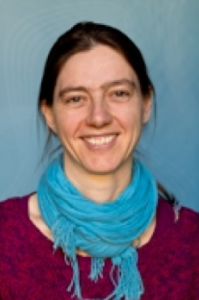 Cindy Horst is Research Director and Research Professor in Migration and Refugee Studies at the Peace Research Institute Oslo (PRIO). Her current research interests include: mobility in conflict; diaspora; humanitarianism; refugee protection; (transnational) civic engagement; and theorizing on social transformation.
Cindy Horst is Research Director and Research Professor in Migration and Refugee Studies at the Peace Research Institute Oslo (PRIO). Her current research interests include: mobility in conflict; diaspora; humanitarianism; refugee protection; (transnational) civic engagement; and theorizing on social transformation.
Redigert av Christine Jacobsen, Synnøve Bendixsen, Karl Harald Søvig
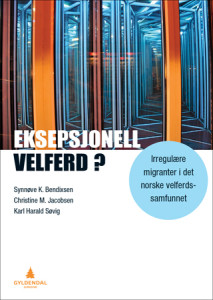 Irregulære immigranter har på noen områder full tilgang til velferdsytelser, men på mange områder er tilgangen svært begrenset enten i form av rettsregler eller andre barrierer. Denne antologien undersøker forholdet mellom rettslig rammeverk, institusjonell praksis og hvordan irregulære migranter selv erfarer sin situasjon.
Irregulære immigranter har på noen områder full tilgang til velferdsytelser, men på mange områder er tilgangen svært begrenset enten i form av rettsregler eller andre barrierer. Denne antologien undersøker forholdet mellom rettslig rammeverk, institusjonell praksis og hvordan irregulære migranter selv erfarer sin situasjon. Med en unik kombinasjon av juridisk og antropologisk blikk, går boken regelverket nærmere i sømmene, drøfter gatebyråkraters utfordringer og hverdagslivet til irregulære migranter og deres barn.
Hvilke regelverk får konsekvenser for irregulære migranters levevilkår? Hvordan blir dette regelverket forstått og etterfulgt av gatebyråkrater? Og hvordan blir hverdagslivet til irregulære migranter og deres barn påvirket av regelverket og dets fortolkning?
Denne boken er aktuell for velferdsprofesjoner som møter irregulære migranter som en del av sin yrkesutøvelse. Både leger, sykepleiere, helsesekretærer, lærere, helsesøstre, skolerådgivere, sosialarbeidere, sosionomer og barnevernspedagoger vil ha god nytte av Eksepsjonell velferd? Irregulære migranter i det norske velferdssamfunnet. Boken retter seg også mot frivillige organisasjoner som jobber med ulike aspekter ved migranters situasjon i Norge og andre som er engasjert i temaet.

